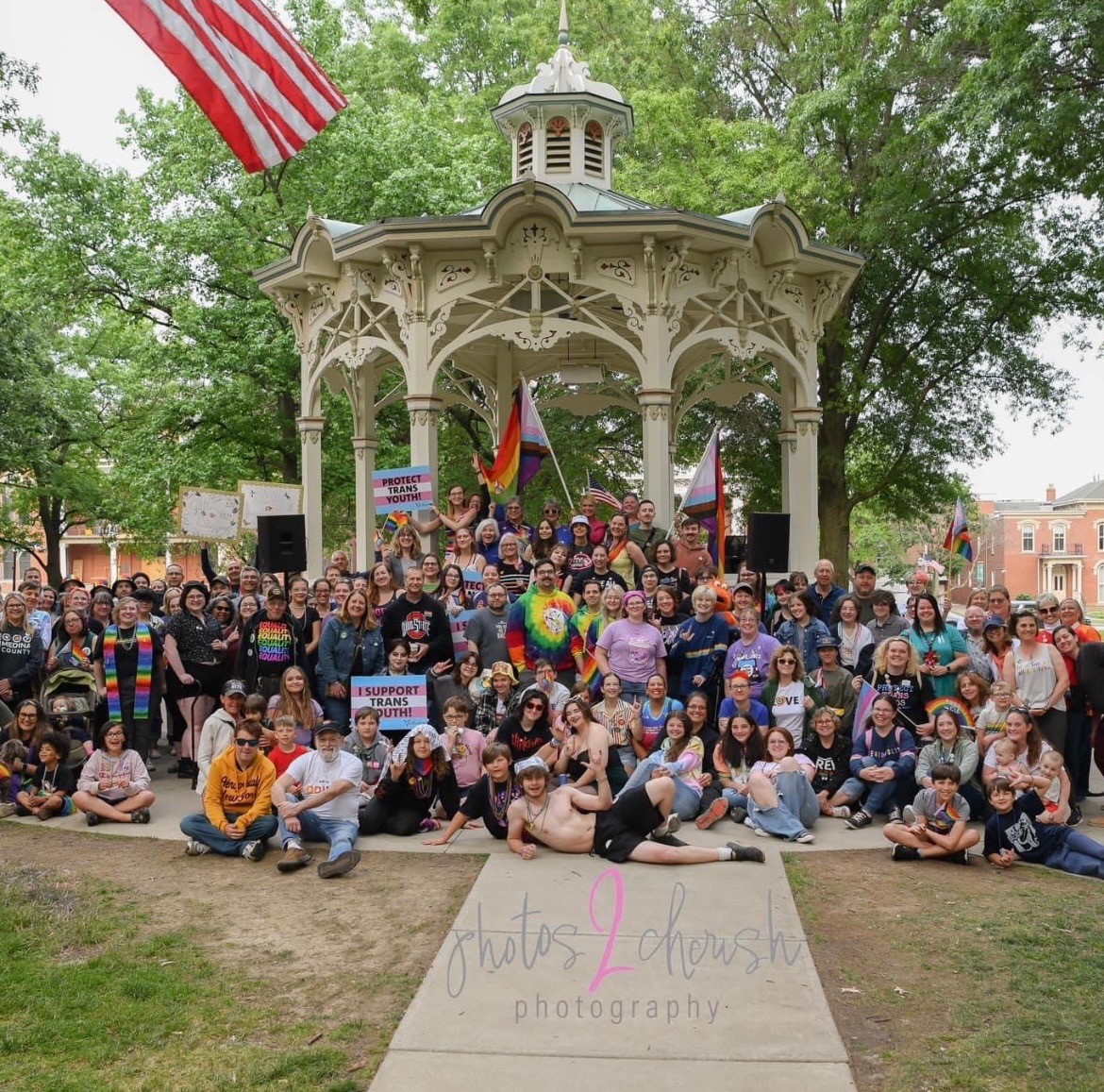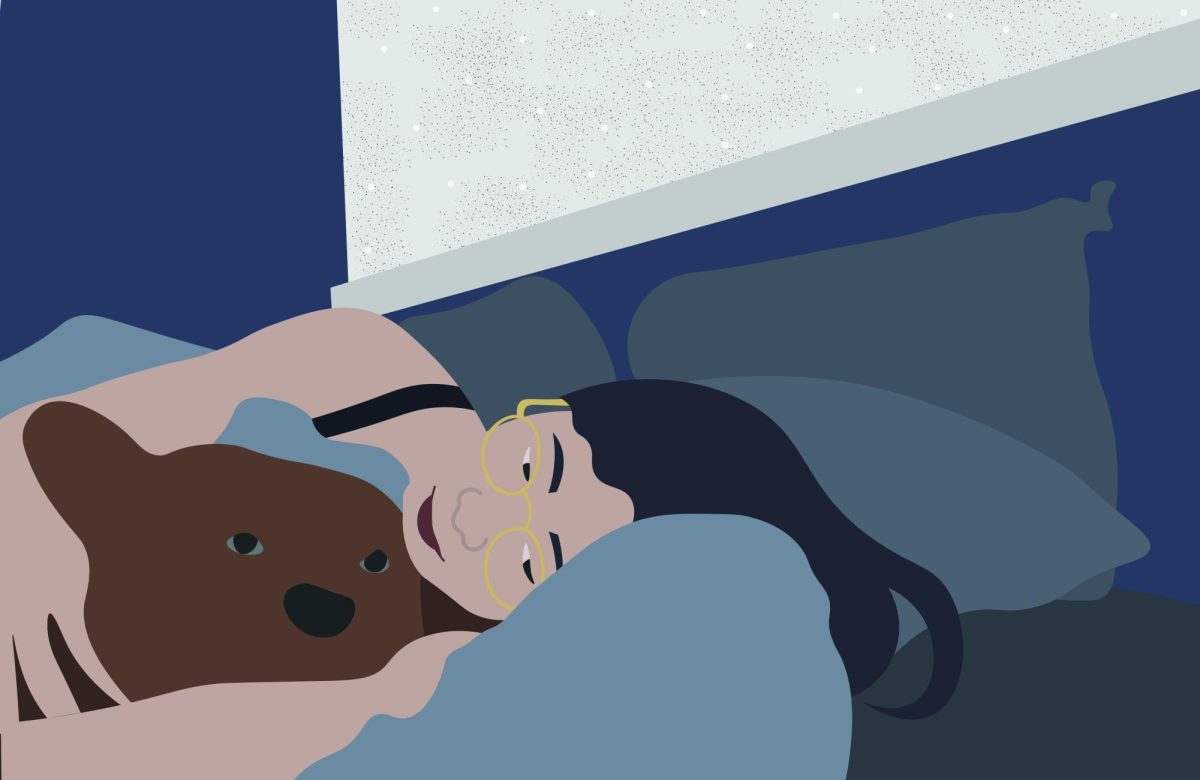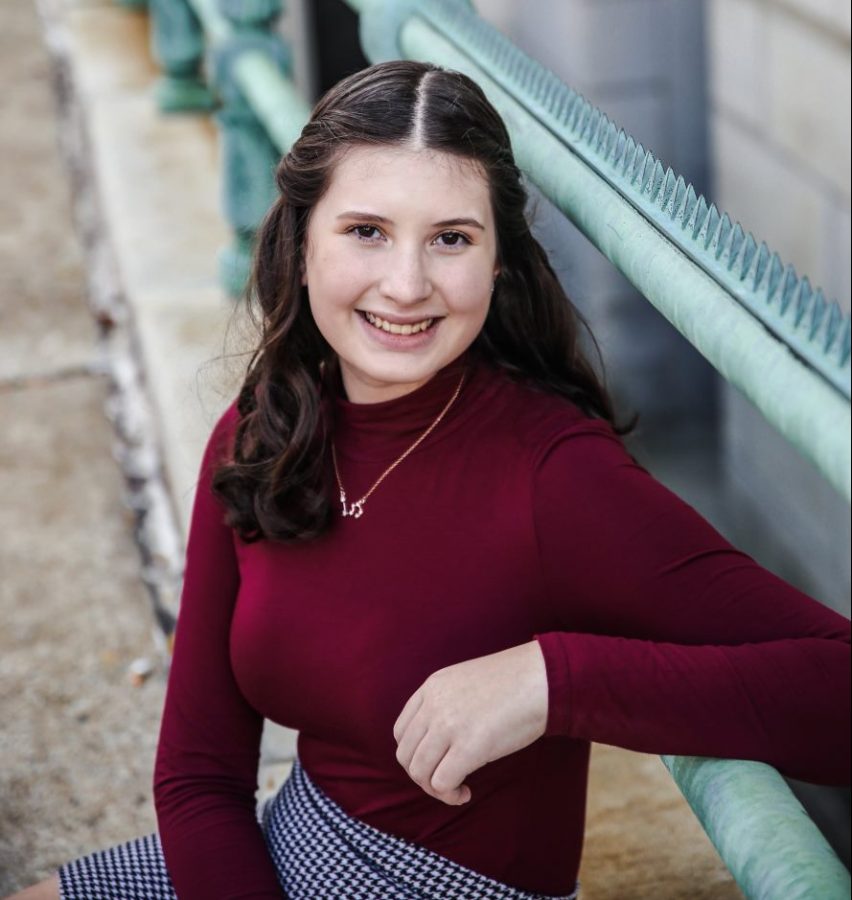A tacky plastic flower arch covered in a thick layer of dust in front of a clerk of courts is not everyone’s dream wedding. Before same-sex marriage was legalized, it was Ken Ditlevson’s legal marriage.
Ditlevson is the director of Kent State’s LGBTQ+ center and in 2014, he and his husband had to leave Ohio to legally marry in Washington, D.C.
“It actually really infuriates me that I had to leave Ohio to have my rights recognized,” Ditlevson said.
Twenty years ago on May 17, 2004, Massachusetts was the first state in the U.S. to legalize same-sex marriage. Over ten years later, in June 2015, Ohio legalized it as well.
After Ohio banned same-sex marriage in 2004, the legalization was a slow process. Ohio was one of the last seven states to pass it — only when it became a federal court ruling.
“We always get there, but we’re always last to the party when it comes to social change and social equality,” Ditlevson said.
He said although the legalization is something to celebrate, it’s important to stay aware of the political climate due to the backsliding of laws.
“There’s a lot of angst and concern in the community, and worry whether same-sex marriage will remain or whether that will be challenged and tried to be overturned,” Ditlevson said.
After Roe v. Wade was overturned in 2022, Supreme Court Justice Clarence Thomas also said same-sex marriage rulings should be reconsidered.
Legislation that is counter-supportive can have an effect on the mental health of people in the community.
“It’s not just when it passes, but when we see these things being talked about in the news, it’s having an effect on our young people who are seeing there is a large part of our community that is not supportive,” Ditlevson said.
When people do not have a support system, they are even more at risk, he said. This is one of the reasons Sandy Varndell, founder of OutSupport Medina, started the organization to help the LGBTQ+ community in Medina and beyond.
She started the support group in 2013 after her son Ross, a Kent State alumni, came out as transgender and wanted to do more for those who did not have a support system.
“The gender identity or the sexual orientation of my children doesn’t factor in my love for my children,” Varndell said. “We do realize there are many families who don’t quite see it that way.”
The very first program with the organization provided undergarments to transgender teens and young adults, and they also started “Transgender 101,” a course dedicated to education.
In 2019, Varndell worked with Equality Ohio and TransOhio to pass a non-discrimination ordinance in Medina.
The city now prohibits discrimination based on sexual orientation and gender identity. For example, landlords are no longer allowed to evict tenants because of their orientation.
Ditlevson said education and having personal interactions or conversations with members of the LGBTQ+ community can help people see how much they have in common, and make them more likely to stand up for equality.
“We have jobs, we have families, we have people that we care about, we have hobbies, we have passions,” Ditlevson said. “There are very few differences in LGBTQ+ folks’ lives and heterosexual people’s lives with this tiny little piece of attraction or identity.”
Not having access to the same marriage rights has a bigger impact on the community; not having their marriage recognized by the state leads to other factors as well.
Before LGBTQ+ people had the right to get married across the nation, Ditlevson said he worried about having his husband on his health insurance, or whether he would be able to come see him in the hospital if something happened to him.
“There’s so many social things that people don’t consider that we’ve had to fight for and are really important that they remain intact,” Ditlevson said.
Meghan Schwind, assistant director of Kent State’s LGBTQ+ center, and her wife also had struggles before getting married in 2022. They were both paying for their own insurance, which was significantly more expensive.
They also knew they wanted to start a family. This concerned the couple; if something had happened to Schwind during childbirth, Child Protective Services would not have recognized her partner as a legal parent and could have taken their child.
“I would’ve been fine with not getting the government involved in my love; however, the government was going to be involved in other aspects of my life whether I like it or not,” Schwind said. “So, having this little piece of paper, a marriage license and certificate, helps protect me.”
As Pride Month begins, Ditlevson said we should honor differences and let people live their authentic lives.
“There’s a lot of diversity in our world and people that are different, [and] when we’re not exposed to differences [they] can seem really scary, but LGBTQ+ folks are no different than anyone else,” Ditlevson said. “When we see people living their authentic lives, having gender-affirming care, having counselors trained in the topic, we see very good outcomes for LGBTQ+ individuals.”
Savana Capp is a reporter. Contact her at [email protected].







